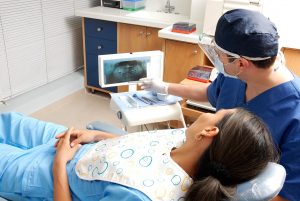
It’s a huge achievement that most dental practices in the UK are now open for face-to-face services. However, only emergency appointments and people with the greatest need have access to services. There is guidance in place to help you understand whether your dental issue is an emergency and what you can do if it is an emergency.
Due to COVID-19 routine dental care has changed. Social distancing rules have made it harder to access services. If you need Fleet dental care services during the pandemic, here are a few tips to help you out.
How Do I Find A Dentist?
If you want some dental assistance during the pandemic, you need to do the following.
• Call your local dentist to get information on their working hours or advice on where to get the type of care that you need.
• If you don’t have a preferred local dentist or yours has closed, you can call NHS
• Make sure you don’t visit a dentist without making an appointment.
Dental practises across the country will be forced to prioritize their patients based on their needs. The British Dental Association advises the following.
• If you call a dentist to make an appointment, you will be asked some screening questions. The same questions will also be asked during your dentist appointment.
• You will have to use hand sanitizer or wash your hands when you arrive to the dentist’s office and before you leave.
• You will have to practice social distancing in the waiting rooms.
• Dentists will have to manage appointments to allow social distancing between patients. Therefore, you will be offered fewer options when scheduling your appointments.
What Is Defined As A Dental Emergency During The Coronavirus Pandemic?
You should contact a local dental practice if you have any of the following.
• Swelling of the gum, face or cheek. If the swelling is spreading down your neck, to the eye and along the floor of your mouth, make sure you mention it when you reach out to the practice.
• Excruciating pain resulting in lack of sleep and concentration.
• Mouth ulcers that have not completely healed after 2 weeks.
• A recent tooth extraction that is still bleeding, lasting more than 20 minutes and will not stop even after biting hard into gauze.
• If you have a tooth issue and been following advice but it is getting worse.
• Broken tooth resulting in pain and damage to the tongue and cheek that can’t be managed with self-help advice.
• Knocked out teeth
• Controlled bleeding resulting from facial trauma.
Dental issues that don’t qualify as emergencies can be handled at home or over-the-phone consultation. These include the following.
• A minor toothache that comes and goes resulting in a dull aching pain.
• Pain in the wisdom teeth without any swelling or restricted opening of the mouth.
• Sensitive teeth
• Sharp pain when biting down
• Sensitive or bleeding gums
• Broken or chipped tooth
• Mouth ulcers that have been present for less than 10 days
• Missing or loose crown/veneer
• Orthodontic pain problems
• Discomfort from dentures
You should visit accident and emergency services if you have the following symptoms.
• Facial swelling that affects your breathing, vision and your ability to swallow as well as if it prevents you from opening your mouth more than 2 fingers wide.
• Rapid and uncontrollable bleeding from your mouth
• Trauma resulting in loss of consciousness, vomiting or double vision
Remember, your oral health affects the rest of your body. You need to be extremely careful if you notice any of the symptoms above and get the help you need to avoid further complications.